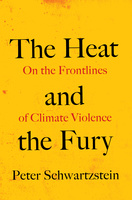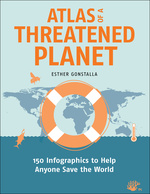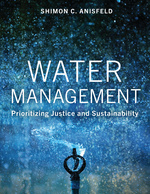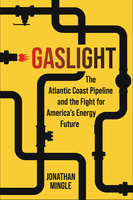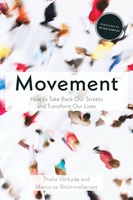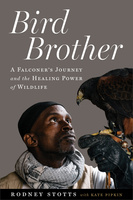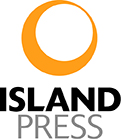
Island Press began with a simple idea: knowledge is power—the power to imagine a better future and find ways for getting us there. Founded in 1984, Island Press’ mission is to provide the best ideas and information to those seeking to understand and protect the environment and create solutions to its complex problems.
Meet Me at the Library
A Place to Foster Social Connection and Promote Democracy
America is facing an epidemic of loneliness and isolation, with troubling effects on our mental and physical health. How do we create spaces for people to come together—to open our minds, understand our differences, and exchange ideas?
Shamichael Hallman argues that the public library may be our best hope for bridging these divides and creating strong, inclusive communities. While public libraries have long been thought of as a place for a select few, increasingly they are playing an essential role in building social cohesion, promoting civic renewal, and advancing the ideals of a healthy democracy. Many are reimagining themselves in new and innovative ways, actively reaching out to the communities they serve.
Meet Me at the Library offers us a revealing look at one of our most important civic institutions and the social and civic impact they must play if we are to heal our divided nation.
The Heat and the Fury
On the Frontlines of Climate Violence
"Schwartzstein’s vignettes of each troubled region are vibrantly narrated as he encounters indignant locals and has run-ins with menacing state security officials attempting to block his investigations into what they invariably consider a ‘sensitive’ subject. It’s a riveting journey through a world running hot." --Publishers Weekly, starred
As a journalist on the climate security beat, Peter Schwartzstein has been chased by kidnappers, detained by police, and told, in no uncertain terms, that he was no longer welcome in certain countries. Yet these personal brushes with violence are simply a hint of the conflict simmering in our warming world.
A new dam that has brought Egypt and Ethiopia to the brink of war over water. ISIS recruiters who exploit drought to pad their ranks. Farmers-turned-pirates who can no longer make a living off the land and instead make it off bloody ransoms.
In The Heat and the Fury, Schwartzstein not only puts readers on the frontlines of these conflicts but gives us the context to make sense of seemingly senseless acts. His incisive analysis of geopolitics, unparalleled on-the-ground reporting, and keen sense of human nature offer the clearest picture to date of the violence that threatens us all.
Atlas of a Threatened Planet
150 Infographics to Help Anyone Save the World
Atlas of a Threatened Planet will spark your curiosity and invite you to see the Earth in a new way. It is written for all who want to understand the interlocking pieces of our home—and fight for the best ideas and strategies to save it.
Threat Multiplier
Climate, Military Leadership, and the Fight for Global Security
Water Management
Prioritizing Justice and Sustainability
This text explores the entire gamut of water issues, from dams to desalination, from prior appropriation to pumped storage, from sanitation to stormwater. Rather than teaching from one disciplinary perspective, it examines water through a variety of lenses: hydrology, climate science, ecology, and engineering, but also law, economics, history, and environmental justice. The result is a comprehensive introduction to one of the most demanding challenges of our time: developing just and sustainable solutions to water management.
Climate Action for Busy People
Killed by a Traffic Engineer
Shattering the Delusion that Science Underlies our Transportation System
Fixing the carnage on our roadways requires a change in mindset and a dramatic transformation of transportation. This goes for traffic engineers in particular because they are still the ones in charge of our streets.
In Killed by a Traffic Engineer, civil engineering professor Wes Marshall shines a spotlight on how little science there is behind the way that our streets are engineered, which leaves safety as an afterthought. While traffic engineers are not trying to cause deliberate harm to anyone, he explains, they are guilty of creating a transportation system whose designs remain largely based on plausible, but unproven, conjecture.
Killed by a Traffic Engineer is ultimately hopeful about what is possible once we shift our thinking and demand streets engineered for the safety of people, both outside and inside of cars. It will make you look at your city and streets—and traffic engineers—in a new light and inspire you to take action.
Bicycle City
Riding the Bike Boom to a Brighter Future
Piatkowski offers pragmatic lessons drawn from the latest research along with interviews, anecdotes, and case studies from around the world. Electric bikes are demonstrating the ability of bikes to replace cars in more places and for more people. Cargo bikes are replacing SUVs for families and delivery trucks for freight. At the same time, mobility startups are providing new ownership models to make these new bikes easier to use and own, ushering in a new era of pedal-powered cities.
Bicycle City is about making cities better with bikes rather than for bikes.
When Driving Is Not an Option
Steering Away from Car Dependency
One third of people living in the United States do not have a driver license. Because the majority of involuntary nondrivers are disabled, lower income, unhoused, formerly incarcerated, undocumented immigrants, kids, young people, and the elderly, they are largely invisible.
In When Driving is Not an Option disability advocate Anna Letitia Zivarts draws from interviews with involuntary nondrivers from around the US and from her own experience, to shine a light on the number of people in the US who cannot drive and outline actions to improve our mobility systems.
When the needs of involuntary nondrivers are viewed as essential to how we design our transportation systems and our communities, not only will we be able to more easily get where we need to go, but the changes will lead to healthier, climate-friendly communities for everyone.
Gaslight
The Atlantic Coast Pipeline and the Fight for America's Energy Future
Their struggle took them all the way to the Supreme Court, but their larger fight was in the court of public opinion. Would the nation swallow the industry’s narrative that gas was “a bridge fuel” to a clean, green future? Or would the public recognize it as a methane bomb, capable of not only wrecking local communities but imperiling the planet? Vivid and suspenseful, Gaslight is essential reading for anyone who wants to understand the urgent stakes of the energy choices we face today.
Movement
How to Take Back Our Streets and Transform Our Lives
Making our communities safer, cleaner, and greener starts with asking these fundamental questions: who do our streets belong to, how do we want to use them, and who gets to decide? To truly transform mobility, we need to look far beyond the technical aspects and put people at the center of urban design. Movement will change the way that you view our streets.
Making Climate Tech Work
Policies that Drive Innovation
Bird Brother
A Falconer's Journey and the Healing Power of Wildlife
Barons
Money, Power, and the Corruption of America's Food Industry
“In this eye-opening debut study, Frerick, an agricultural policy fellow at Yale University, reveals the ill-gained stranglehold that a handful of companies have on America’s food economy…It’s a disquieting critique of private monopolization of public necessities.” - Publishers Weekly, starred
Barons is the story of seven titans of the food industry, their rise to power, and the consequences for workers, eaters, and democracy itself. Readers will meet a secretive German family that took over the global coffee industry in less than a decade, relying on wealth traced back to the Nazis to gobble up countless independent roasters. They will visit the Disneyland of agriculture, where school children ride trams through mechanized warehouses filled with tens of thousands of cows that never see the light of day. And they will learn that in the food business, crime really does pay—especially when you can bribe and then double-cross the president of Brazil. Barons paints a stark portrait of corporate consolidation, but it also shows that a fair, healthy, and prosperous food industry is possible—if we take back power from the barons who have robbed us of it.
Human Transit, Revised Edition
How Clearer Thinking about Public Transit Can Enrich Our Communities and Our Lives
The first edition of Human Transit, published in 2011, has become a classic for professionals, advocates, and interested citizens.
Walker has updated and expanded the book to deepen its explanations. New topics include the problem with specialization; the role of flexible or “demand response” services; how to know when to redesign your network; and responding to tech-industry claims that transit will soon be obsolete. Finally, he has also added a major new section exploring the idea of access to opportunity as a core measure of transit’s success.
No other book explains the basic principles of public transit in such lively and accessible prose, all based on a respect for your right to form your own opinion. Walker’s goal is not to make you share his values, but to give you the tools to clarify and advocate for yours.


